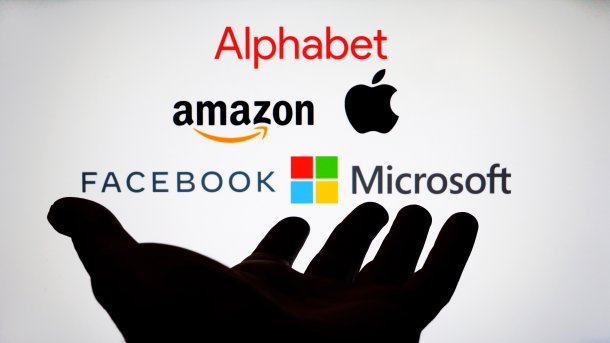vzbv: Amazon, Meta and others implement DMA requirements only inadequately
The Digital Markets Act contains regulations on data aggregation and service coupling. The gatekeepers hardly comply with them, say consumer advocates.

(Image: Ascannio/Shutterstock)
Platform operators such as Meta, Amazon, TikTok and Google use manipulative designs to persuade users to agree to the most extensive possible merging of personal data. This is one of the findings of an investigation by the Federation of German Consumer Organizations (Verbraucherzentrale Bundesverband, vzbv). This is in breach of EU law, according to which such practices must be prevented.
The vzbv looked at services that are considered "gatekeepers" in the EU and are therefore subject to the regulations of the Digital Markets Act (DMA), which has been in force since the beginning of March. Soon afterwards, the EU Commission began investigating whether Alphabet, Meta, Amazon and Apple had sufficiently implemented the requirements. This specifically involved Google's search, Apple's rules for the AppStore, Amazon's ranking and Meta's payment model.
Read also
FAQ: Digital Markets Act
In its investigation (PDF), the vzbv focused on whether the companies comply with the ban on tying services (Article 5 (8) DMA). For example, the vzbv noticed the Facebook Marketplace. "In the opinion of the vzbv, the service cannot be meaningfully used as a marketplace without being logged into a Facebook account. For example, users cannot contact sellers or post their own offers," write the consumer advocates.
Playing with user concerns
They also investigated whether the gatekeepers comply with the rules on data pooling (Article 5 (2)). In all cases, the vzbv found that they made it difficult for users to withdraw their consent to the merging of data from multiple services. All of the providers examined used manipulative designs to obtain consent. These include the visual design of the user interface, the language used and the effort required to customize a data merge. For example, Amazon, Google and LinkedIn (Microsoft) generally offer two buttons that users can use to allow or reject the merging of data between multiple services. Consent for individual services can only be adjusted via a link next to it, which is not designed as a button.
The video platform TikTok from the Chinese company ByteDance deliberately plays on users' concerns that they will have to pay for the service if they do not agree to data merging. Meta suggests in various services that consenting to data merging is solely a question of the user experience. If users do not consent, there is also a risk of disadvantages. In certain cases, users would then only be able to use services to a limited extent.
According to the vzbv, it examined the gatekeepers between May 16 and June 26, 2024. To do so, it used the information on the providers' websites or apps and used a Samsung Galaxy S23 and a Google Pixel 8, both with Android 14, as well as an Apple iPhone SE with iOS 17.5.1. The devices were reset to the factory settings for the tests. The consumer advocates evaluated the information using a previously developed category system based on the legal requirements.
(anw)